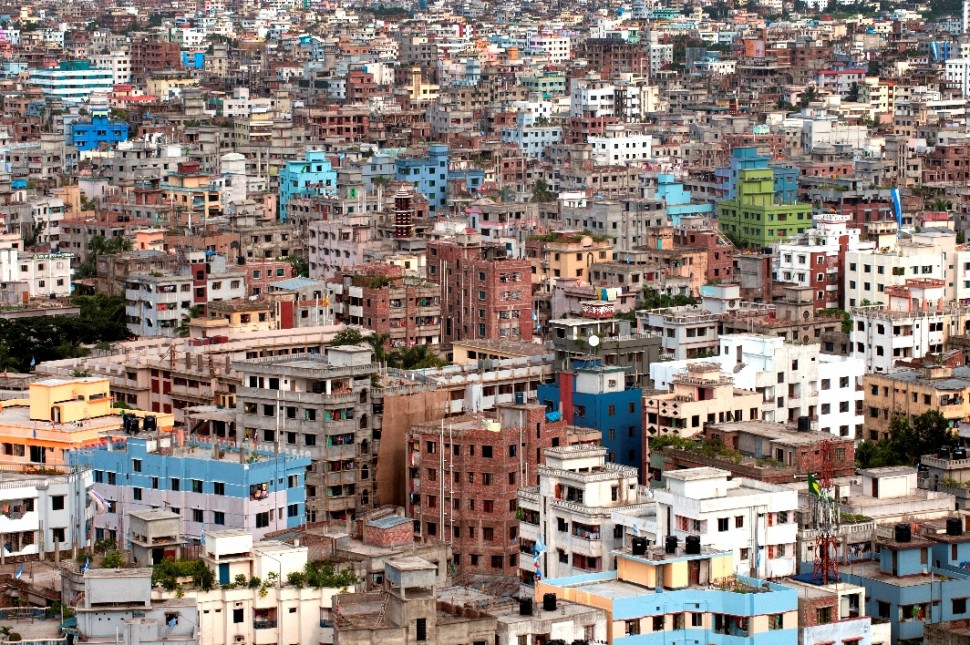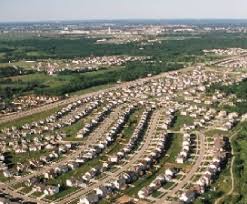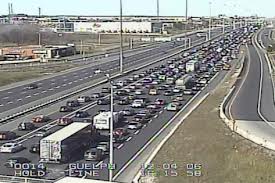 By Anna Leidreiter, Policy Officer, World Future Council
By Anna Leidreiter, Policy Officer, World Future Council
Sustainable development is now like a rubber band; it can be stretched in all directions. Its meaning is vague and open to wide interpretation.
The classic definition for sustainable development was put forward in 1987 : “Sustainable development is development that meets the needs of the present without compromising the ability of future generations to meet their own needs.” If we accept this interpretation, one thing is clear. Sustainable development is no longer enough. “The ability of future generations to meet their own needs” is already compromised. When we consider how degraded our ecosystems already are, there is far less to sustain today than there was 20 years ago.

This is certainly intensification. Is it sustainable? How different it is from some of what Burlington has done recently?
Not surprisingly, cities and urban areas are major contributors to this trend. Since the Industrial Revolution, disregard for resource generation and use has significantly contributed to climate change and the loss of soil carbon, natural fertility of farmland, and biodiversity all over the world. Though urban areas constitute 3-4 percent of the world’s surface, their ecological footprints cover most of the productive land surface of the globe. Apart from holding a near monopoly on the demand for fossil fuels, metals, and concrete, our urbanising humanity now consumes nearly 40 percent of nature’s annual primary production.
Under current trends, humans will require the biocapacity of two earths by 2030. This can’t continue — there is only one Earth, after all. We must find ways to significantly reduce the giant ecological footprints of cities.
The solution lies in thinking beyond the vague and unambitious notion of sustainability and working instead toward regenerating soils, forests, and watercourses and aiming to improve, rather than merely sustain, their degraded condition. And cities must lead the way in embracing regeneration over sustainability.
Regenerative urban development means comprehensive strategies to re-establish an enhancing, restorative relationship between a rapidly urbanising humanity and the ecosystems from which it draws resources for sustenance. This means more than becoming resource efficient and emitting few carbons. To regenerate is to enhance, rather than undermine, the ecosystems on which we depend. Regenerative cities dramatically reduce their dependence on fossil fuels, boost deployment of renewable energies, reintroduce water to the hydrology cycle, rely on local and regional food production, and make sewage reprocessing and nutrient capture a central plank of waste management.

Which of Burlington’s seven member municipal council have their heads in the sand when it comes to fully understanding our sustainability issues, and which of them are working at doing something about it?
Burlington has begun to look seriously at a Community Energy Plan that has significant potential – does it have a hope of getting approved by city council where they can’t go along with even a mild private tree bylaw that would prevent the rapacious cutting of trees for developments that aren’t all that sustainable to begin with.
In Wilhelmsburg, one of Hamburg’s former working-class districts and home to 55,000 residents, research shows that local renewable energy can meet the electricity requirements of all buildings in this district by 2025. By 2050, almost all heating demands can also be met this way. The International Building Exhibition (IBA) Hamburg has initiated projects for new energy-efficient buildings, renovation of other buildings, and the generation of renewable energy. This is a step-by-step conversion to 100 percent renewable energy for a climate-neutral Wilhelmsburg. In the meantime, any energy imports into the city (for industrial needs, for example) are to come from the region, rather than distant sources, to ensure that income and jobs remain in the area.
The transformations required to replicate these successes call for far-reaching strategic choices and long-term planning, as compared to the short-term compromises and patchwork solutions that characterise most of our political decision-making systems in all spheres of government.
Creating the parameters for appropriate action involves political and business decisions on a spectrum ranging from transnational and national to urban levels. It involves drawing up novel legal and governance frameworks and addressing the profit logic of companies that are involved in natural resource extraction. The right policies can set parameters for and foster regenerative urbanisation.

Is this what we did with the Alton Village? Is this what we will do with Eagle Heights? Does it work? Is it sustainable? What if it isn’t? What happens then?
To develop these parameters and concrete policy recommendations, the World Future Council and the City of Hamburg, together with international partners from the private sector, academia, and international organisations, will host the 3rd Future of Cities Forum this September. The forum seeks to catalyse a multi-stakeholder dialogue about opportunities and barriers in and for cities to become future-just and regenerative habitats.
Where would Burlington fit into something like this? Our Sustainable development committee and its followers speak frequently about the need for what we do to be sustainable – does the city practice what it preaches?






















I remember learning about climate change when I was 18 years old thanks to An Inconvenient Truth by Al Gore & being flabbergasted that with the wealth of environmental issues facing us that the general attitude is to do the exact same thing & hope for the best. New thinking is needed to help to solve the problems created by old thinking & it is the future (and present) of our children & youth that is at stake. We know exactly where we need to go and instead of thinking of every single barrier to achieving sustainability, let’s set our eyes on the prize and make it happen! “In the end, our society will be defined not only by what we create, but by what we refuse to destroy” J. C. Sawhill
Great Article! Sustainable Development, while of noble intent with many good people involved, has become a fig leaf for lack of action. I held out real hope when Councillor Jim Ryan established Burlington’s committee many years ago; about time someone challenged this oxymoron.
While I agree to some extend with the writer, I strongly dislike it when comparisons are being made between a place such as Germany and Canada where the former fits three times into Ontario and 27 times into Canada. Distances are different and so is the climate. Hamburg does. Other suffer from the extremes of temperature variation that we suffer within a 24-hours period.
True, all of the new subdivisions in Burlington are ill planned and created as cheaply as possible, but it is simply not possible to create here what is happening in Hamburg. Our population is not dense enough, and I hope it never will be, or we can truly say goodbye to a green belt.
I automatically cringe when I see comments like these – as if we can learn nothing from the examples of others simply because we live in a country with a lot of empty space in the North and our cities are spread out across a 100km band. What difference does it make to our day to day decisions? How does the location of Vancouver prevent us from generating local renewable energy to meet Burlington’s needs in Burlington? Southern Ontario is just as dense as most of Europe, and our climate is not all that different from Germany’s. People will come up with all kinds of excuses to ensure that our children pay the price of our short-term thinking.